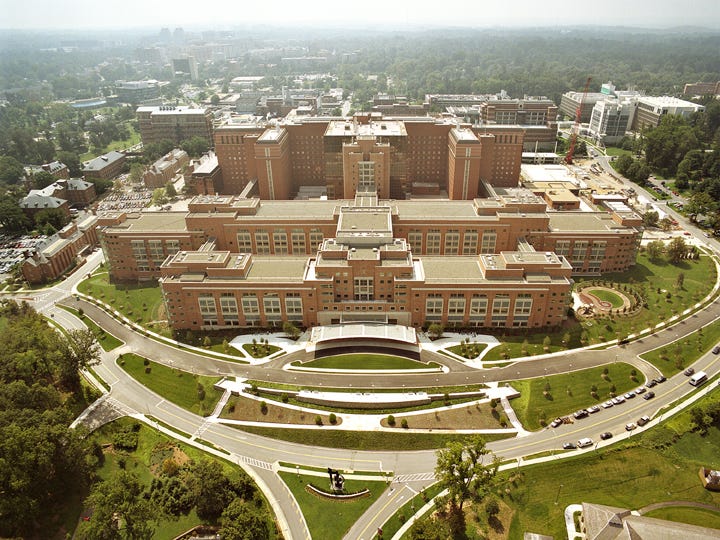A biosecurity advisory board has recommended the NIH adopt much stricter regulations on potentially risky pathogen research. It's way overdue.
A draft report by the National Science Advisory Board has been released. A public meeting on the recommendations will take place on Friday.
Journalist Emily Kopp of the activist group U.S. Right to Know has published an excellent report on draft recommendations by the National Science Advisory Board for Biosecurity. The much anticipated recommendations would tighten control on NIH funded research with potentially dangerous pathogens.
Among the wealth of details about the history of this process Emily provides, I am particularly struck by the remarkable lack of transparency in how NIH now monitors such research (including so-called gain-of-function studies) under the current "enhanced pandemic pathogens committee" or P3CO.
Very few research projects are actually referred to the committee for scrutiny, Emily reports, and when they are, the discussions are entirely secret. "The composition of the P3CO is unknown to anyone outside of the process except for the NSABB and a few members of Congress," she writes.
Emily quotes the draft saying, quite reasonably, that public trust requires such transparency, and that scrutiny of projects must go beyond "a small fraction of the life sciences research enterprise..."
To make matters worse, privately funded research projects are under no obligation to inform anyone what they are doing. But even in the NIH funded sphere (meaning mostly research funded by the National Institute of Allergy and Infectious Diseases, from which Anthony Fauci has just retired as director), only three projects were referred to the committee by NIAID in the five years the P3CO has existed. In other words, the funding agencies are making the decisions about what projects are scrutinized, without themselves being subject to oversight.
The lack of transparency is so blatant that the names of the P3CO were not even provided to the General Accounting Office, the non-partisan agency of Congress that provides important oversight and which has also been examining lapses in pathogen research regulation.
Apparently, the excuse for this was that members of the P3CO might be in danger, although it is not clear from whom.I find it hard not to suspect that NIH, NIAID, and other funding bodies have implicitly or explicitly appointed themselves protectors of virologists and other scientists who want to do gain-of-function and other risky research, rather than protectors of the public.
As I and many others have written, the possibility that the Covid-19 pandemic began as a lab accident or other incident at the Wuhan Institute of Virology is far from being ruled out, and active investigations in the origins of the pandemic—by Congress and reporters—are underway.
Whatever the case, whether the Covid-19 pandemic originated in a lab in Wuhan, a seafood market in that city, or from some other source, those of us whose lives are potentially affected--and have already been dramatically affected worldwide--have the right to know what scientists are doing. The state of affairs where researchers can go about their business as if what they do is none of our business needs to end.
The public meeting of the NSABB will take place this Friday, January 27, and can be viewed online.


